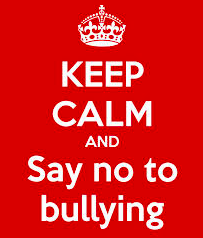If you are an employee, sub-contractor, consultant or member of a stakeholder group or Community Consultative Committee (CCC), there are things that you can do if you feel that you are being bullied when dealing with a company.
Everyone at the workplace has a Work Health and Safety duty. Under WHS laws, while at work, workers must take reasonable care that their behaviour does not adversely affect the health and safety of other persons.
It is important that the bullied person take action early to document the bullying and seek support. There should be company policies and procedures that explain the courses of action available in addition to the legislated protections.
The Safe Work Website says that the negative impacts of workplace bullying on the victims or witnesses “is repeated and unreasonable behaviour directed towards a worker or a group of workers that creates a risk to health and safety.”
Examples of potential unreasonable behaviour include:
- abusive, insulting or offensive language or comments
- aggressive and intimidating conduct
- belittling or humiliating comments
- victimisation
- practical jokes or initiation
- unjustified criticism or complaints
- deliberately excluding someone from work-related activities
- withholding information that is vital for effective work performance
- setting unreasonable timelines or constantly changing deadlines
- setting tasks that are unreasonably below or beyond a person’s skill level
- denying access to information, supervision, consultation or resources to the detriment of the worker
- spreading misinformation or malicious rumours, and changing work arrangements, such as rosters and leave, to deliberately inconvenience a particular worker or workers
This could have the following effects on the bullied person
- distress, anxiety, panic attacks or sleep disturbance
- physical illness, for example muscular tension, headaches, fatigue and digestive problems
- reduced work performance, concentration and decision making ability
- loss of self-esteem and self-confidence
- feelings of isolation
- deteriorating relationships with colleagues, family and friends
- depression,and
- thoughts of suicide
The longer bullying continues, the more difficult it is to address and the harder it becomes to repair working relationships.
The Safe Work guide entitled “Dealing with Workplace Bullies” is a resource that persons who feel bullied should refer to. The Guide says that workplace bullying should always be reported as soon as possible. The Person Conducting the Business or Undertaking (PCBU) cannot address the problem if they do not know about it.
You can make a workplace bullying report verbally or in writing, including by:

- informing your supervisor or manager
- informing your HSR or union representative and asking them to make a report on your behalf, or
- using other established reporting procedures.
The Guide for Preventing and Responding to Workplace Bullying that is intended for PCBU’s clearly states that the PCBU has the primary duty under the WHS Act. Officers such as company directors must exercise due dilligence to ensure that the company is complying with the WHS Act.
The CCC Guidelines are less specific but does contain the duties of the Proponent, Code of Conduct for the Independent Chairperson and the Code of Conduct for Committee Members. The Guidelines outline the training requirements of CCC members re conflict resolution, and dispute resolution processes which should be followed.
Jun 19 2018
Corporate Bullying – resources for the coal impacted community
If you are an employee, sub-contractor, consultant or member of a stakeholder group or Community Consultative Committee (CCC), there are things that you can do if you feel that you are being bullied when dealing with a company.
Everyone at the workplace has a Work Health and Safety duty. Under WHS laws, while at work, workers must take reasonable care that their behaviour does not adversely affect the health and safety of other persons.
It is important that the bullied person take action early to document the bullying and seek support. There should be company policies and procedures that explain the courses of action available in addition to the legislated protections.
The Safe Work Website says that the negative impacts of workplace bullying on the victims or witnesses “is repeated and unreasonable behaviour directed towards a worker or a group of workers that creates a risk to health and safety.”
Examples of potential unreasonable behaviour include:
This could have the following effects on the bullied person
The longer bullying continues, the more difficult it is to address and the harder it becomes to repair working relationships.
The Safe Work guide entitled “Dealing with Workplace Bullies” is a resource that persons who feel bullied should refer to. The Guide says that workplace bullying should always be reported as soon as possible. The Person Conducting the Business or Undertaking (PCBU) cannot address the problem if they do not know about it.
The Guide for Preventing and Responding to Workplace Bullying that is intended for PCBU’s clearly states that the PCBU has the primary duty under the WHS Act. Officers such as company directors must exercise due dilligence to ensure that the company is complying with the WHS Act.
The CCC Guidelines are less specific but does contain the duties of the Proponent, Code of Conduct for the Independent Chairperson and the Code of Conduct for Committee Members. The Guidelines outline the training requirements of CCC members re conflict resolution, and dispute resolution processes which should be followed.
By MCCC • Uncategorized •